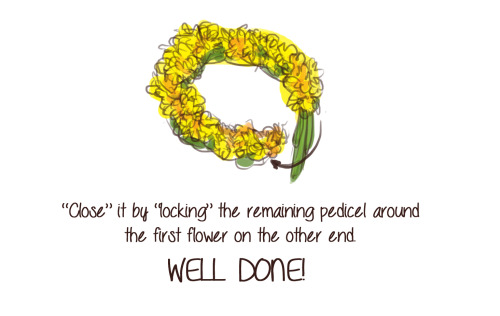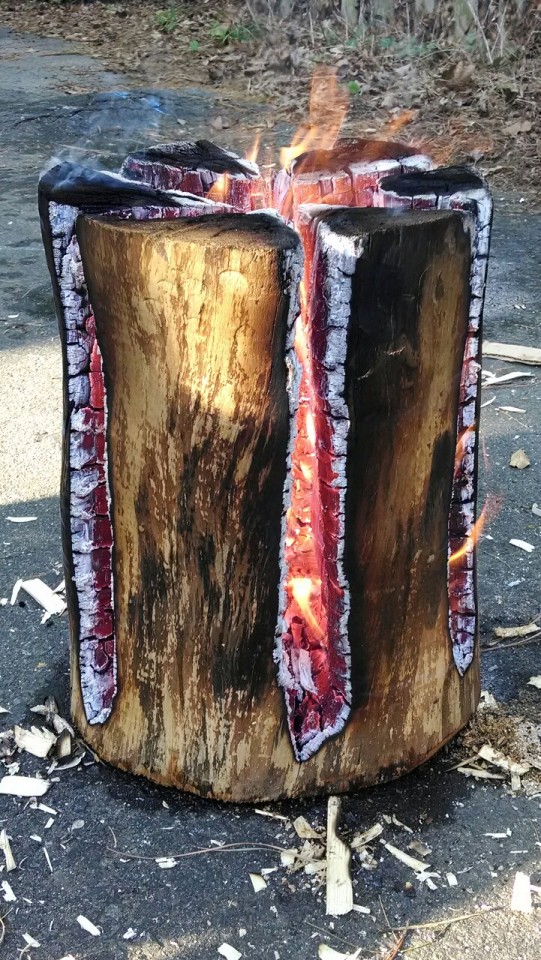10 Ways To Observe The Moon For International Observe The Moon Night
10 Ways to Observe the Moon for International Observe the Moon Night
On Saturday, October 5, we will host the 10th annual International Observe the Moon Night. One day each year, everyone on Earth is invited to observe and learn about the Moon together, and to celebrate the cultural and personal connections we all have with our nearest celestial neighbor! This year is particularly special as we mark the 50th anniversary of the Apollo 11 Moon landing while looking forward to our Artemis program, which will send the first woman and next man to the Moon.
There are many ways to participate in International Observe the Moon Night. You can attend an event, host your own or just look up! Here are 10 of our favorite ways to observe the Moon.
1. Look up

Image Credit: NASA’s Scientific Visualization Studio/Ernie Wright
The simplest way to observe the Moon is simply to look up. The Moon is the brightest object in our night sky, the second brightest in our daytime sky and can be seen from all around the world — from the remote and dark Atacama Desert in Chile to the brightly lit streets of Tokyo. On October 5, we have a first quarter Moon, which means that the near side of the Moon will be 50 percent illuminated. The first quarter Moon is a great phase for evening observing. Furthermore, the best lunar observing is typically along the Moon’s terminator (the line between night and day) where shadows are the longest, rather than at full Moon. See the Moon phase on October 5 or any other day of the year!
2. Peer through a telescope or binoculars

Image Credit: NASA/Molly Wasser
With some magnification help, you will be able to focus in on specific features on the Moon. In honor of this year’s 50th Anniversary of the Apollo 11 Moon Landing, see if you can find Mare Tranquillitatis (Sea of Tranquility)! Download our Moon maps for some guided observing on Saturday.
3. Photograph the Moon

Image Credit: NASA/GSFC/Arizona State University
Our Lunar Reconnaissance Orbiter (LRO) has taken more than 20 million images of the Moon, mapping it in stunning detail. You can see featured, captioned images on LRO’s camera website, like the crater seen above. And, of course, you can take your own photos from Earth. Check out our tips on photographing the Moon!
4. Relax on your couch

Image Credit: NASA’s Scientific Visualization Studio/Ernie Wright
Is it cloudy? Luckily, you can observe the Moon from the comfort of your own home. The Virtual Telescope Project will livestream the Moon from above the Roman skyline. Or, you can take and process your own lunar images with the MicroObservatory Robotic Telescopes. Would you prefer a movie night? There are many films that feature our nearest neighbor. Also, you can spend your evening with our lunar playlist on YouTube or this video gallery, learning about the Moon’s role in eclipses, looking at the Moon phases from the far side and seeing the latest science portrayed in super high resolution.
5. Touch the topography

Image Credit: NASA GSFC/Jacob Richardson
Observe the Moon with your hands! If you have access to a 3D printer, you can peruse our library of 3D models and lunar landscapes. This collection of Apollo resources features 3D models of the Apollo landing sites using topographic data from LRO and the SELENE mission. The 3D printed model you see above is of the Ina D volcanic landform.
6. Make and admire Moon art

Image Credit: LPI/Andy Shaner
Enjoy artwork of the Moon and create your own! For messy fun, lunar crater paintings demonstrate how the lunar surface changes due to frequent meteorite impacts.
7. Listen to the Moon
Image Credit: NASA Explorers: Apollo/System Sounds
Treat your ears this International Observe the Moon Night. Our audio series, NASA Explorers: Apollo features personal stories from the Apollo era to now, including yours! You can participate by recording and sharing your own experiences of Apollo with us. Learn some lunar science with the second season of our Gravity Assist podcast with NASA Chief Scientist, Jim Green. Make a playlist of Moon-themed songs. For inspiration, check out this list of lunar tunes. We also recommend LRO’s official music video, The Moon and More, featuring Javier Colon, season 1 winner of NBC’s “The Voice.” Or you can watch this video featuring “Clair de Lune,” by French composer Claude Debussy, over and over.
8. Take a virtual field trip

Image Credit: NASA/SSERVI
Plan a lunar hike with Moon Trek. Moon Trek is an interactive Moon map made using NASA data from our lunar spacecraft. Fly anywhere you’d like on the Moon, calculate the distance or the elevation of a mountain to plan your lunar hike, or layer attributes of the lunar surface and temperature. If you have a virtual reality headset, you can experience Moon Trek in 3D.
9. See the Moon through the eyes of a spacecraft

Image Credit: NASA/GSFC/MIT
Visible light is just one tool that we use to explore our universe. Our spacecraft contain many different types of instruments to analyze the Moon’s composition and environment. Review the Moon’s gravity field with data from the GRAIL spacecraft or decipher the maze of this slope map from the laser altimeter onboard LRO. This collection from LRO features images of the Moon’s temperature and topography. You can learn more about the different NASA missions to explore the Moon here.
10. Continue your observations throughout the year

Image Credit: NASA’s Scientific Visualization Studio/Ernie Wright
An important part of observing the Moon is to see how it changes over time. International Observe the Moon Night is the perfect time to start a Moon journal. See how the shape of the Moon changes over the course of a month, and keep track of where and what time it rises and sets. Observe the Moon all year long with these tools and techniques!
However you choose to celebrate International Observe the Moon Night, we want to hear about it! Register your participation and share your experiences on social media with #ObserveTheMoon or on our Facebook page. Happy observing!
Make sure to follow us on Tumblr for your regular dose of space: http://nasa.tumblr.com.
More Posts from Sunlightandbasil and Others
Two job-hunting resources that changed my life:
This cover letter post on askamanger.com. A job interview guide written by Alison Green, who runs askamanager.
BBC made a Planet Earth parody called Round Planet and it’s amazing
Imagine planet earth but the narration is ridiculous and hilarious











A how to make flower crowns with dandelions. Not sure if it will work on other flowers, but as long as the stalk/pedicel is long it should be alright O v O Also I hope it’s understandable ahah
ULTIMATE "OH FUCK I JUST GOT MY FIRST APARTMENT AND ALL I HAVE IS ONE CHANGE OF CLOTHES AND A THIRD SOCK" CHECKLIST
CLEANING
Dish soap
Laundry detergent
All-purpose cleaner
Hand soap
Broom
Mop
Wash cloths / rags
Vacuum
Dustpan
Lint roller
Sponges
KITCHENWARE
Plates
Bowls
Spoons
Forks
Knives
Glasses
Mugs
Tongs
Spatula
Plastic wrap
Ziplock baggies
Garbage bags
Paper towel
Tupperware
Ice tray
Oven mitts
Potato peeler
Mixing bowls
Frying pan
Pot
Baking sheet
Whisk
Stirring spoons / ladels
Tea infuser ball
Measuring cups
Strainer
Cutting board
Coffee maker
Kettle
Toaster
Magnets
Dry erase markers
Sticky notes
Microwave
Wire sponge
Trash bin
Recycling bin
Rubber gloves
Silverware organizer
Measuring spoons
Aluminum foil
Wax paper
Can opener
Bottle opener
Containers for salt, sugar, flour, etc.
LIVINGROOM
Sofa
Rocking chair (you know you want one)
Loveseat
Coasters
Blankets
Throw pillows
Coffee table
Book shelves
TV
TV stand
Floor lamp
End table
Stereo system / radio
BEDROOM
Mattress
Box spring
Bedframe
Linens
Sheets
Comforter
Hangers
Laundry hamper
Trash bin
Curtains
Pillows
Pillow cases
Night table
Alarm clock
Lamp
Dresser
Coat rack
Desk / vanity
Comfy chairs
DININGROOM
Dining table
Minimum of 2 chairs
Coasters
Placemat
Tablecloth
Tea lights /candles and candle holders
BATHROOM
Face clothes
Towel
Soap bar
Body wash
Shampoo
Conditioner
Tissues
Toilet paper
Trash bin
Plunger
Toilet cleaner
Cold, flu, pain, and allergy meds
Hydrogen peroxide
Antibacterial ointment
First-Aid kit
Tweezers
Nail clippers
Band-aids
Shower rod
Shower curtain
Toothbrush
Toothpaste
Floss
Period products
Bathmat
Air freshener
Trash bin
Towel rod
Towels
MISCELLANEOUS
Elastic bands
Stapler
Stables
Paper clips
Needles and thread
AA / AAA batteries
Light bulbs
Extension cords
Scotch tape
Duct tape
Shovel
Rake (if you have a yard)
Stain remover
Jar of courters for laundry mat
Screw drivers
Hammer
Nails
Sticky tack
Screws
Box cutter / X-acto
Pliers
Wrench
Pens
Paper
Pencils
Pencil sharpener
Eraser
Welcome matt
Shoe rack
Coat rack
Flashlight
Flashlight batteries
Watch batteries
Rechargeable batteries and charger
Safe place to discard dead batteries
Candles
Matches
Lighter
Mini travel fans
Real fans
Emergency Survival kit
Fire extinguisher
Landline phone
Window air conditioner
Carbon monoxide alarm
Fire alarm
FOOD STUFF
Mustard
Ketchup
Mayo
Salt
Pepper
Baking soda
Flour
Eggs
Milk
Bread
Olive oil
Tea
Jam
Peanut-butter
Coffee grounds
Cereal
Rice
Pasta
Vegetable soup
Tomato sauce
Frozen vegetables
Crackers
Chickpeas / lentils
Apples
Oranges
Granola bars
Juice
Hot chocolate mix
Frozen meats
GETTING A JOB CHEAT SHEET!!
perfect resume for someone with no experience
A+ advice on writing cv’s
a guide to writing your resume
how to get a job fast as hell
resume writing tips
jobs and careers masterpost
how to answer interview questions
career and employment masterpost
strong words to use on a resume
34 crucial tips for your next job interview
how to write a cv
resume cheat sheet
how to write a cover letter
job hunting resources
Find a job in your field
7 questions you should ask at the end of every interview
how to get a job before you graduate
how to be good at interviews
other cheat sheets

07/28/17
JESSICA CHOU Has A YouTube Channel Teaching Women About Basic Vehicle Maintenance
This is quite an interesting YouTube channel concept, and it shows that … Asian chicks kick ass! JESSICA CHOU is a young Asian American woman who has a YouTube channel which basically teaches other girls and women about how to fix their car.
“I think we don’t see as many female mechanics because the industry is still so heavily dominated by men. When we think of a mechanic, we think of men. When we see ads or posters of mechanics, we see men. When we see shows about cars, we see men. It will take a long time to change all of this, but in the 10 short months that I’ve been on this journey, I’ve met so many incredible people who are out to change the game.”
Know what I’m salty about?
In all my art classes, I was never taught HOW to use the various tools of art.
Like yes, form, and shape and space and color theory and figure drawing is important, but so is KNOWING what different tools do.
I’m 29 and I JUST learned this past month that India Ink is fucking waterproof when it dries. Why is this important? Because I can line something in India Ink and then go over it with watercolors. And that has CHANGED the ENTIRE way I art and the ease I can create with.
tldr: Art Teachers: teach your students what different tools do. PLEASE.
-
 898orkun liked this · 2 years ago
898orkun liked this · 2 years ago -
 kleo23oo liked this · 3 years ago
kleo23oo liked this · 3 years ago -
 angery-budgie liked this · 3 years ago
angery-budgie liked this · 3 years ago -
 intothevoiiiiiid liked this · 3 years ago
intothevoiiiiiid liked this · 3 years ago -
 oflodamonstro liked this · 3 years ago
oflodamonstro liked this · 3 years ago -
 theteapractitioner reblogged this · 4 years ago
theteapractitioner reblogged this · 4 years ago -
 go-go-before-you-wake-me-up liked this · 4 years ago
go-go-before-you-wake-me-up liked this · 4 years ago -
 -psycho- liked this · 4 years ago
-psycho- liked this · 4 years ago -
 aaron-steelheart liked this · 4 years ago
aaron-steelheart liked this · 4 years ago -
 madakasiradinesh liked this · 4 years ago
madakasiradinesh liked this · 4 years ago -
 kissmewithyourmouth liked this · 4 years ago
kissmewithyourmouth liked this · 4 years ago -
 wilord1 liked this · 4 years ago
wilord1 liked this · 4 years ago -
 petite-lunas liked this · 4 years ago
petite-lunas liked this · 4 years ago -
 galacticpineapple reblogged this · 5 years ago
galacticpineapple reblogged this · 5 years ago -
 plvto013 reblogged this · 5 years ago
plvto013 reblogged this · 5 years ago -
 itsoneloafofbreadareyoukiddingme liked this · 5 years ago
itsoneloafofbreadareyoukiddingme liked this · 5 years ago -
 fandomforever369 liked this · 5 years ago
fandomforever369 liked this · 5 years ago -
 galaxyinmy-heart liked this · 5 years ago
galaxyinmy-heart liked this · 5 years ago -
 sunlightandbasil reblogged this · 5 years ago
sunlightandbasil reblogged this · 5 years ago -
 karchuckles liked this · 5 years ago
karchuckles liked this · 5 years ago -
 redzscare liked this · 5 years ago
redzscare liked this · 5 years ago -
 x-molly-moon liked this · 5 years ago
x-molly-moon liked this · 5 years ago -
 no-pretence-of-something liked this · 5 years ago
no-pretence-of-something liked this · 5 years ago -
 samsredemption liked this · 5 years ago
samsredemption liked this · 5 years ago -
 unknown-uwoit liked this · 5 years ago
unknown-uwoit liked this · 5 years ago -
 she-loves-blue liked this · 5 years ago
she-loves-blue liked this · 5 years ago -
 levi-robbed-my-tea-cupboard reblogged this · 5 years ago
levi-robbed-my-tea-cupboard reblogged this · 5 years ago -
 u-crazy-child liked this · 5 years ago
u-crazy-child liked this · 5 years ago -
 camcordelia liked this · 5 years ago
camcordelia liked this · 5 years ago -
 zephyr-of-the-south liked this · 5 years ago
zephyr-of-the-south liked this · 5 years ago -
 yxxrlxcxlbxbywxtch liked this · 5 years ago
yxxrlxcxlbxbywxtch liked this · 5 years ago -
 a-tiny-wizard liked this · 5 years ago
a-tiny-wizard liked this · 5 years ago -
 ashesraizer676 liked this · 5 years ago
ashesraizer676 liked this · 5 years ago -
 oujiblanchette liked this · 5 years ago
oujiblanchette liked this · 5 years ago -
 hi-i-like-comics-and-series liked this · 5 years ago
hi-i-like-comics-and-series liked this · 5 years ago


